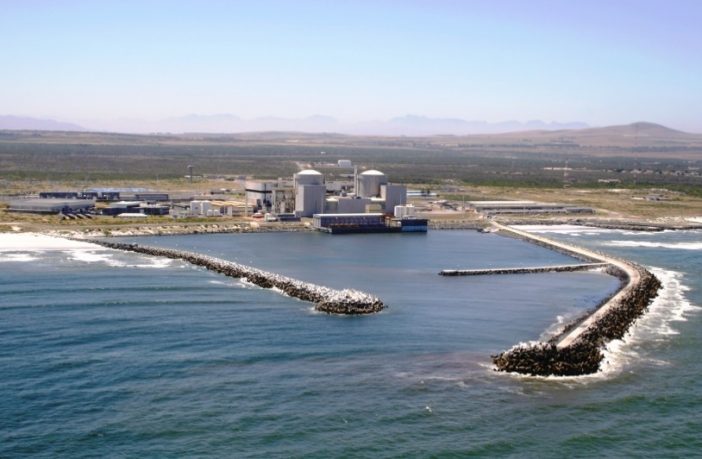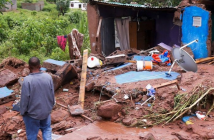Opinion
As fast as South Africa’s power stations during the 1980s were built, so too will they be decommissioned as they reach their 50-year life expectancy. Over 12GW is planned for decommissioning over the next decade without a convincing replacement plan in sight, writes Des Muller.

Will the imminent Integrated Resource Plan for electricity (IRP) resolve this dilemma?
Although South Africa’s manufacturing and construction sectors are currently depressed, our resilience as a transformed industry should never be underestimated. We have the ideal combination of experienced mentors and a capable and eager young population to make this happen.
Technology has since moved on with the introduction of new concepts in power generation like cleaner-coal technologies, gas-to-power, renewable energies and advanced nuclear energy.
The digital industrial revolution has also found its way into the engineering, manufacturing and construction sectors. These innovations provide opportunities to develop new skills for the advanced-energy projects that employ these new technologies.
Read more: The Big Question: nuclear energy build programme
However, there are vested interests who say, “we have lost our industrial capacity and should therefore lower our ambitions and rather pursue more basic imported energy technologies”, unfortunately at the expense of our local industry.
Eskom’s recent new-build programme has highlighted some of these challenges. What’s important are the lessons learned from these projects and whether we are now better placed as an industry to take on something more technically advanced like nuclear construction?
Nuclear power plants are based on a reference design, which means South Africa will build an exact replica of nuclear plants that exist and operate successfully elsewhere in the world.
Nuclear power plants are also delivered by experienced and qualified nuclear vendors on a turn-key basis and comes with attractive funding and nuclear industrialisation packages. This alone mitigates some of the fundamental challenges experienced on Eskom’s mega projects.
Although nuclear power plants provide one of the cleanest, most reliable and affordable sources of energy, they also need to operate safely to protect people and the environment under any circumstances, including terrorism and extreme natural events.
To achieve this, the DNA of today’s nuclear power plants are based on internationally bench-marked quality and safety standards from design and engineering to manufacturing and construction, as well as operations, waste management and decommissioning. Compliance to these standards are rigorously regulated throughout the plant’s lifecycle management programme.
South Korea’s developments in nuclear energy drove their industrial expansion programme. Today they are considered as one of the leading high-tech exporters of the world. Similarly, an established nuclear industry in South Africa will help position our industry in other safety-class industries, improve our overall performance and open our industry to global export opportunities.
Conventional power plants are built to local industry codes and standards, which our industry is generally qualified and certified to deliver to a good result. The nuclear industry codes and standards are similar but goes further in guaranteeing that the plant is built and operated to its exact design and safety specifications.
This level of attention to detail and compliance requires a new level of skill, industrial excellence and safety culture.
Special international nuclear codes and standards have been developed for each engineering discipline in a nuclear power plant. There are three gradient steps in nuclear quality standards, with the highest level centred around the nuclear island.
A dedicated nuclear quality management system guarantees the implementation of these advanced standards, just as commercial organisations do with their ISO management systems.
South Africa is fortunate to have an established nuclear regulatory environment through the National Nuclear Regulator (NNR). Thanks to Koeberg, Necsa, our universities, the shelved PBMR programme, NIASA and several specialised local contractors, South Africa has managed to maintain the essential nuclear industry skills it needs to ramp up a nuclear new build programme.
With a local industry spend at about R30bn per gigawatt installed, nuclear power offers the highest potential for long-term careers in construction and operation and therefore bound to make a positive contribution toward our national skills shortages and socio-economic development programmes.
A nuclear industry readiness programme needs to start well before first nuclear power is expected on the grid. Industry needs to be fully aligned and orientated before it tenders for nuclear work. One also needs to be qualified to the relevant safety classification before one can sign a contract for the scope of works.
This requires good strategic planning, which South Africa has been engaged in over the last decade. There are several nuclear advisory and education platforms that can provide industry orientation. Necsa and Koeberg’s Visitor Centres are also great sources of nuclear industry knowledge. Nuclear energy is well within our industry’s reach.
The South African government is progressing the licensing of the Duynefontein site in the Western Cape, next to the existing Koeberg nuclear power station, as well as the Thyspunt site in the Eastern Cape, near Port Elizabeth.
These are the first nuclear power plant sites. As a country, we are therefore more ready than ever to have nuclear energy in the IRP. The procurement of a suitable nuclear vendor should commence shortly after the Government’s determination. By then, the local industry will be ready and aligned to engage the abundance of opportunities at hand and deliver them successfully within a well-controlled environment.
Author: Des Muller
About the author
Des Muller is Managing Director at NuEnergy Developments. He is a Power Process Engineer with over 35 years’ applied experience in the development and delivery of thermal, renewable and nuclear energy projects. Des specialises in the industrialisation of complex energy projects in Southern Africa.
This article was originally published on ESI Africa and is republished with permission with minor editorial changes.















